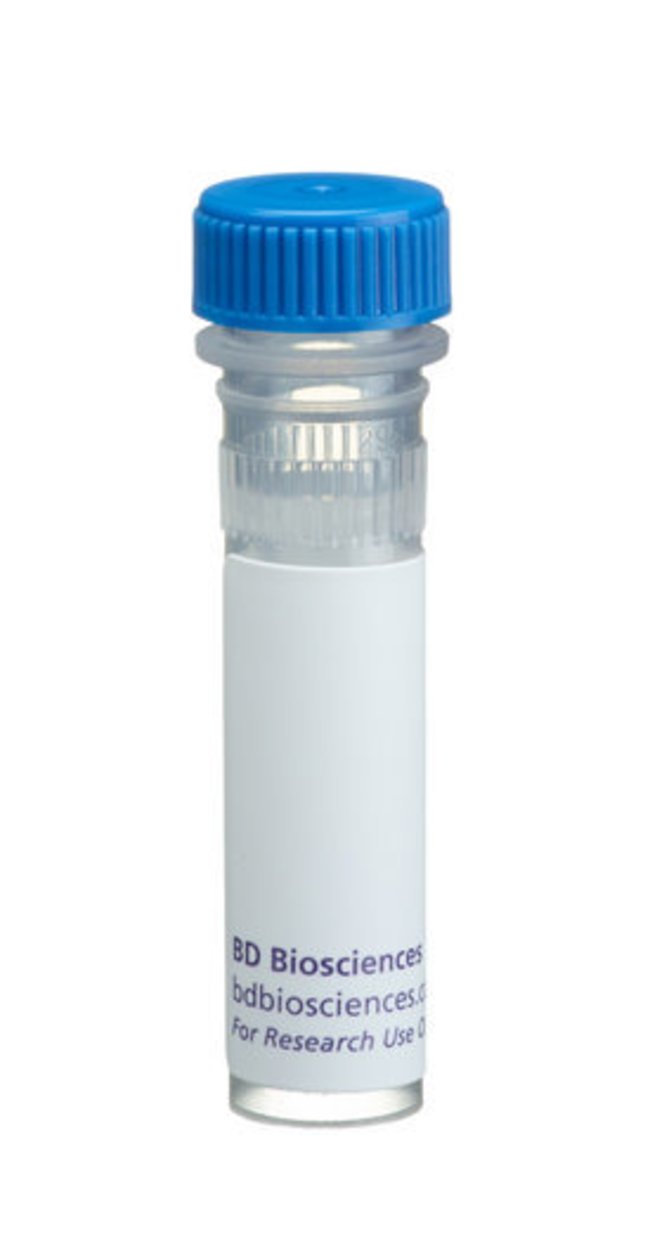53BP1 Mouse anti-Human, Unlabeled, Clone: 19, BD, Mouse Monoclonal Antibody, Each

Details:
The p53 protein is critical to regulation of normal cell growth and is a suppressor of tumor cell proliferation. Inactivation of p53 by a number of mechanisms, such as missense mutations or interaction with oncogenic viral or cellular proteins, can result in tumor progression. In addition, Bcl2 and p53 are involved in apoptosis in an antagonistic fashion such that overexpressed Bcl2 inhibits p53-induced apoptosis. 53BP1 and 53BP2 were identified in a yeast two-hybrid screen of proteins that bind p53. Both 53BP1 and 53BP2 bind wild type p53, but not mutant p53 found in tumor cells. p53BP1 is localized to the cytoplasm and nucleus, while p53BP2 is found only in the cytoplasm. 53BP1 has BRCT motifs found in proteins involved in cell cycle control and DNA repair. DNA damage leads to 53BP1 hyperphosphorylation, which may be mediated by ATM. 53BP2 has four ankyrin repeats and a SH3 domain that are required for interactions with Bcl2 and p53. Overexpression of 53BP2 in 293 cells inhibits progression of the cell cycle in G2/M phase, while co-transfection of 53BP2 with p53 in H358 cells enhances p53-mediated transcriptional activation. The interaction between 53BP2 and p53 may be regulated by Bcl2, since competition experiments demonstrate that Bcl2 prevents p53 binding to 53BP2. In addition, 53BP2 can also bind the apoptotic-related p65 subunit of NFκB and this subunit can inhibit 53BP2-induced cell death.Bioimaging, Immunofluorescence, Western Blotting
Additional Information
| SKU | 10135582 |
|---|---|
| UOM | Each |
| UNSPSC | 12352203 |
| Manufacturer Part Number | 612522 |
